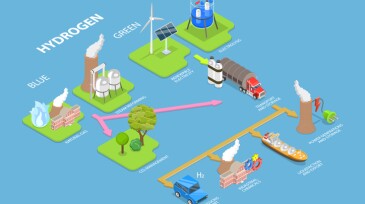Decarbonization
With more than 75,000 professionals in attendance, the fourth edition of India Energy Week brought together industry leaders, policymakers, and energy stakeholders to discuss not just oil and gas, but the future of energy.
The program is designed specifically for STEM students without an engineering background and prepares students to work in energy- and sustainability-focused fields.
Jim Clark, a reservoir engineer with more than 4 decades of experience, reflects on the evolution of subsurface engineering and CCS, emphasizing the growing importance of analytics, cross-disciplinary skills, and technical curiosity for the next generation of engineers.
-
Researchers have developed a low-cost carbon capture technology called PICC that uses only water and pressure to remove nearly all CO2 from industrial exhaust, offering a simpler, cleaner, and more affordable alternative to traditional chemical methods.
-
Steel and cement are indispensable to modern society and the global energy transition, yet their production remains heavily dependent on fossil fuels—making them major contributors to greenhouse-gas emissions and posing a critical challenge to achieving full decarbonization by 2050.
-
Assistant Professor Lori Tunstall received more than $1 million from the Gordon and Betty Moore Foundation to explore how municipal waste can be converted into biochar to replace cement in concrete.
-
Russia’s invasion of Ukraine reignited global interest in nuclear power, driving up uranium demand and prices as nations prioritized energy security and low-carbon reliability amid growing supply and geopolitical challenges.
-
This article highlights how oil and gas companies are leveraging existing infrastructure, expertise, and emerging technologies to lead in the development of the hydrogen economy.
-
Learn how scalable modeling methods help turn the complex design of CO₂ storage systems into practical solutions.
-
With the right governance, CCS funding can be a strategic tool to decarbonize hard-to-abate sectors, safeguard jobs, and help meet net-zero goals.
-
The curriculum covers topics such as geochemical and technological removal methods, life cycle assessments, and storage solutions.
-
While some see CCS as a vital tool for reducing emissions, others are exploring whether its current deployment aligns with long-term climate and clean energy goals.
-
This article explores how early-career engineers can build the competencies needed to support sustainability in oil and gas operations, not just for efficiency but also for climate resilience.
Page 1 of 2













